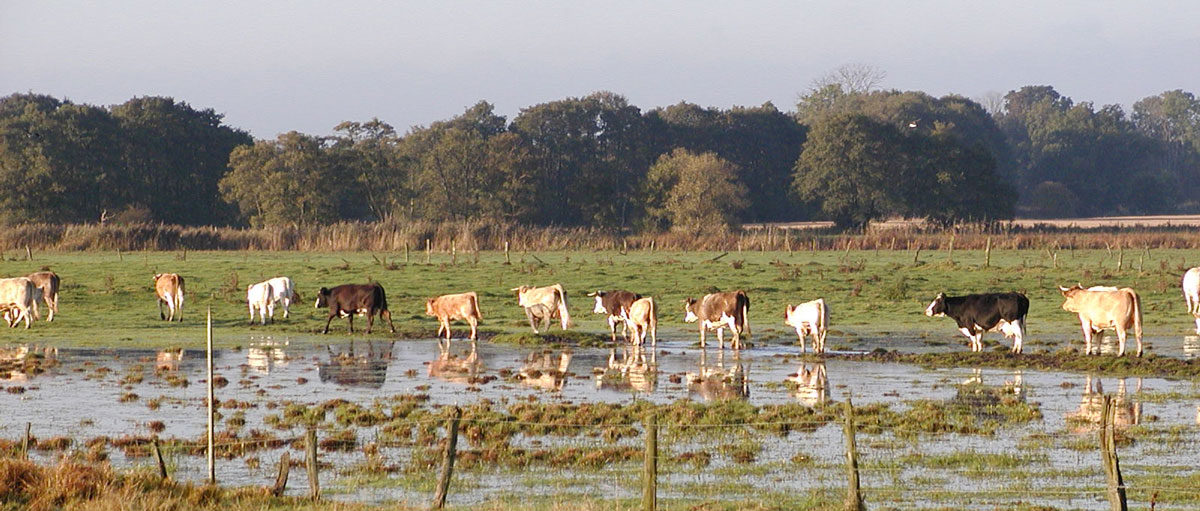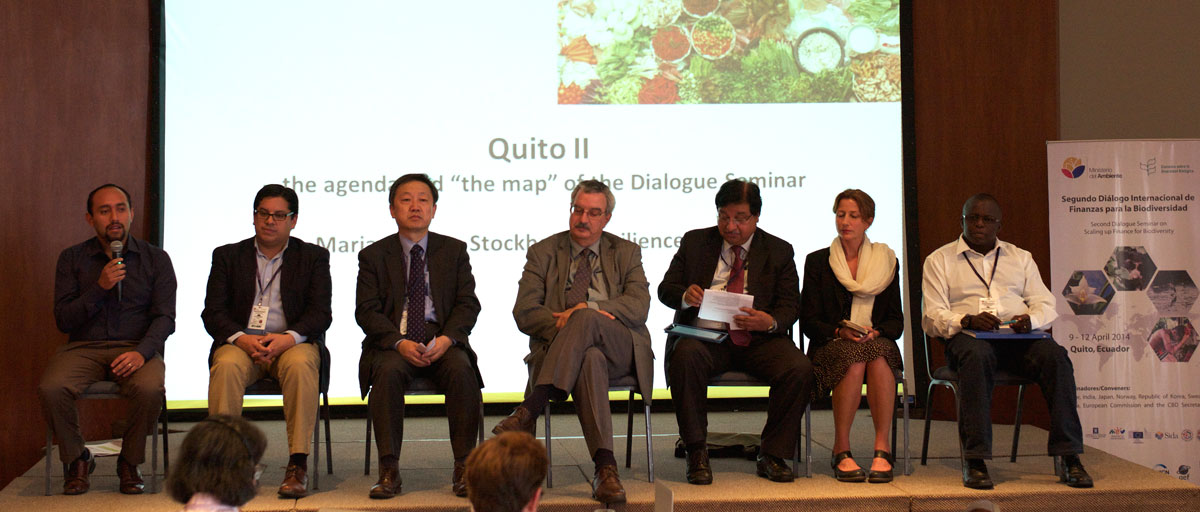Bildtext får vara max två rader text. Hela texten ska högerjusteras om den bara ska innehålla fotobyline! Photo: B. Christensen/Azote
GOVERNANCE AND SOCIAL NETWORKS
When to be adaptive in governance
New study explores how information and collaboration influence governance networks, and highlights trade-offs and benefits of using adaptive policies
• Using social network models, new study explores how social networks are influenced by information and collaboration
• Study highlights that adaptive management policies are not always necessary for maintaining a polycentric government, yet that decision-making processes should still be dynamic
• From a conceptual standpoint, study emphasizes importance of using monitoring and learning to integrate network dynamics
Living in a complex world means complex outcomes. This applies to all areas – from ecosystems to governments. For instance, if a government is trying to implement a new policy, how will it play out? How will it affect other collaborating government agencies?
While this seems nearly impossible to predict, research has tried to understand mechanisms behind these decisions.
A new study in the International Journal of the Commons; lead by Jean-Denis Mathias of France’s National Research Institute of Science and Technology for Environment and Agriculture, and co-authored by centre researchers Steven Lade and Victor Galaz examines how policy choices made by a government influence other governing bodies connected to the government in a network.
Request publication
More specifically, the study looks at polycentric governance, which is when there are multiple authorities that operate at different levels, such as local and central, and often tend to have overlapping roles regarding policies.
While polycentric governance receives quite a bit of research attention, the methods tend to focus on qualitative methods. However, the authors in this study use quantitative measures to understand polycentric governments.
More specifically, they use social network modelling as a tool to examine how government policy decisions influence a connected network of local government agencies. Lade adds that, “the strength of the formal modelling approach used here is that it can provide more complementary and more precise theoretical insights.”
Optimizing polycentricity in social networks
To frame the study, the authors look at polycentricity’s influence. In other words, how a central agent’s policy decisions affect the features of the social network, which is made up of local users and local organizations.
To put this in context, say Sweden’s government is deciding a new policy on agricultural water usage: How would this affect the relationships between the farmers and local water management agencies?
To get at understanding this question, the researchers use viability theory, which helps to forecast which policy options are more likely to yield desirable outcomes. In this specific study, two policy alternatives were examined: adaptive one-level, a more centralized approach; and adaptive co-management, which is a more collaborative policy.
Looking at the level of cooperation in the social network then helps to define which policy is most effective in that particular polycentric government system.
Adaptive co-management - always necessary?
In government networks where central and local agencies are cooperating, there are considerable benefits to maintaining adaptive policies, in this case the adaptive co-management policy.
However, in government networks with little capacity to cooperate, adaptive policies are less influential. In other words, for Sweden’s policy on agricultural water use to succeed as part of polycentric governance, a high level of cooperation would be necessary with the farmers and local water management agencies.
However, what is difficult, is identifying when the dynamics of a government network would benefit from adaptive policies. The current study uses dynamic modeling and viability theory to show the conditions under which adaptive policies may provide added benefit.
The study also highlights the importance of using monitoring and learning to understand when to implement adaptive policies in government networks. It explains how risks and surprises may occur which could then alter the government network.
However, Galaz points out, “The viability approach used in this paper may tackle this issue by offering not only the viable states (for adaptive policies), but also all the viable policies associated to these viable states.”
Ultimately, it comes down to understand the context of the network in question. As Lade concludes, “understanding the right social links, at the right time, around the right issues, is what maintains polycentric governance systems.”
METHODOLOGY
The authors use a network-based approach for conceptualizing multi-level, polycentric governance systems. More specifically, the authors use an aggregated model, which captures the dynamics of a social network. The authors define the processes and actors of the social network. The authors also use viability theory, which is mathematically defined and dependent on context, to conceptualize the problem: how to maintain a polycentric governance system? This allows for different properties of the governance system, in this case collaboration and information, to be investigated. The authors model three different policies scenarios in the governance system to determine what helps to maintain its polycentricity: no adaptive policy, adaptive one-level policy, adaptive co-management policy.
Mathias, J.D., Lade, S. and Galaz, V. 2017. Multi-level policies and adaptive social networks–a conceptual modelling study for maintaining a polycentric governance system. International Journal of the Commons 11(1).
Steve Lade focuses on social-ecological system modelling, planetary boundaries, and poverty traps. Utilising his background in theoretical physics, his research applies theoretical modelling tools, such as dynamical systems theory and network theory, to the study of social-ecological systems.
Victor Galaz is deputy science director and an associate professor at Stockholm Resilience Centre. His research deals with the governance challenges associated with planetary boundaries and the Earth system, including complex social-ecological systems and globally networked risks.









